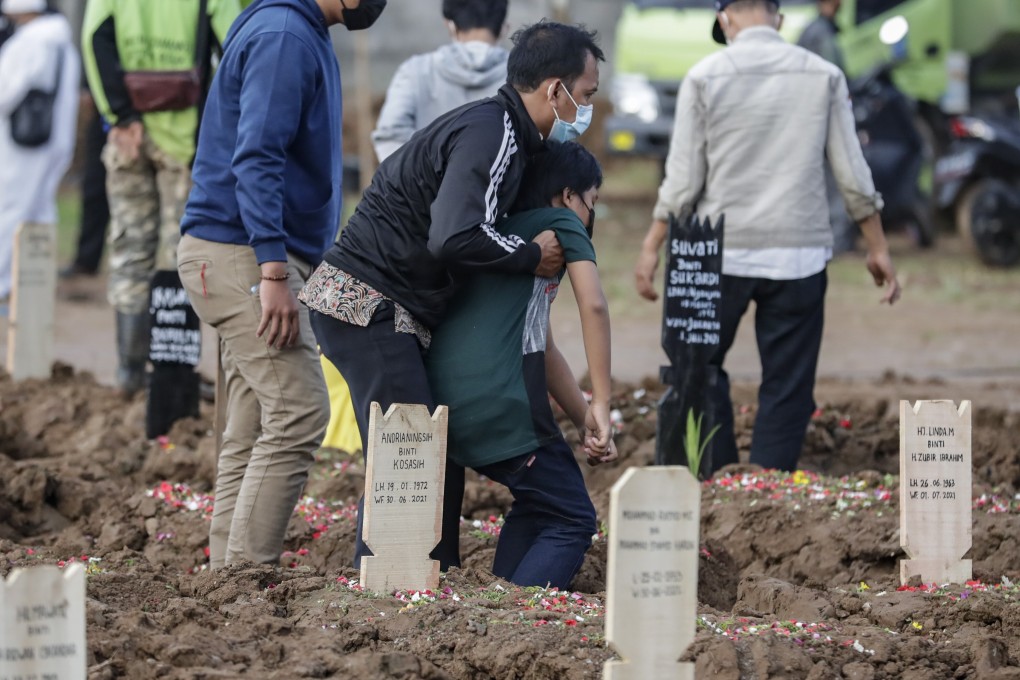Coronavirus: Indonesia defends use of China’s Sinovac amid surge in Delta variant
- The country posted record highs of more than 25,000 infections and 539 deaths on Friday
- Health Minister Budi Gunadi Sadikin says the problem is not the vaccine, but the mutant strain. Sinovac is the only manufacturer to have kept to its commitment, he adds

Budi Gunadi Sadikin said on Friday it was wrong to blame the vaccine for the surge as countries like Israel and Britain, where most people were given the Pfizer-BioNTech or AstraZeneca jabs, were also experiencing surges.
“The issue that we are facing is not about the different efficacy between vaccines, it is primarily because of the Delta variant. It hits every country, so nobody is safe,” Budi said in a webinar held by the Jakarta Foreign Correspondents Club.
“Yes, the number of infections is increasing drastically, but the [Sinovac] vaccine reduces the risks from severe to mild, and from mild to asymptomatic. The number of deaths in the second wave, compared to the first in terms of percentage, is actually fewer.”

05:33
Covid-19 Delta variant: how infectious it is and how it may ‘shift thinking’ on countries reopening
Indonesia posted another record high of daily infections on Friday with 25,830 cases, and record virus-related deaths of 539.